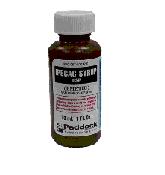

AAP Reverses Guidance on Ipecac
for Poisoning
Nov. 6, 2003 (New Orleans) - The American Academy of Pediatrics
(AAP) issued guidelines at its annual meeting here earlier this
week calling on its membership to urge parents to stop using syrup
of ipecac for poison control.
The guidelines were published in the November issue of Pediatrics, and they reverse a previous policy statement that had been in place since 1989. The AAP had previously recommended that parents keep a one-ounce bottle of syrup of ipecac in the home, to be used in case of accidental ingestion of a toxic substance, but only when advised to do so by a physician or poison control center.
With accumulating evidence that ipecac is not effective and can interfere with other poison control remedies, the AAP decided to issue the new policy, Milton Tenenbein, MD, FAAP, told Medscape in an interview. Dr. Tenenbein is the lead author of the guidelines and director of the Manitoba Poison Control Center in Winnipeg, Manitoba.
Ipecac had fallen out of favor in hospital emergency rooms after joint guidelines were issued by the American Academy of Clinical Toxicology and the European Association of Poisons Centres and Clinical Toxicologists in 1997.
Although it is almost never used or suggested by poison control centers anymore, the AAP thought it was still necessary to publish the new guidelines. In 1985, ipecac was recommended in 15% of telephone conversations, while by 2001, it had declined to 0.7%, according to the AAP.
"Ipecac is a very safe
drug," said Dr. Tenenbein. But, he noted, the vomiting induced
is very unpleasant, and there are worrisome adverse effects such
as persistent vomiting, diarrhea, and lethargy.
The AAP issued five key recommendations:
* Poison prevention should
be an integral part of anticipatory guidance activities of infant
and child health providers.
* Ipecac should no longer be used routinely for poison control
in the home.
* Pediatricians and other healthcare professionals should advise
parents to dispose of ipecac in their homes.
* Current research does not support the use of activated charcoal
in the home.
* Parents or caregivers who suspect a child has ingested a toxic
substance should first consult with a local poison center by calling
(800) 222-1222.
In June, the U.S. Food and Drug Administration (FDA) Non-Prescription Drugs Advisory Committee met to discuss whether ipecac should be stripped of its over-the-counter status. A majority of panelists voted to remove ipecac from drugstore shelves, although some audience members said they were concerned that could endanger children in rural areas who might not be able to get to a health facility quickly.
But Dr. Tenenbein, who testified at that panel meeting in favor of stripping OTC status, told Medscape, "There's no demonstration for efficacy of this treatment, so it doesn't matter where you live, efficacy does not change with distance from care."
If the FDA follows its panel's advice and removes ipecac from drugstores, it will not likely reappear in prescription form, said Dr. Tenenbein.
In a commentary accompanying the new policy in Pediatrics, Michael Shannon, MD, MPH, from the division of emergency medicine at Children's Hospital in Boston, Massachusetts, said that children would not likely be harmed by the absence of ipecac. He cited "rigorous data" showing that in most settings, children have not suffered when ipecac was not available.
"[W]e can no longer claim an evidence-based rationale for keeping ipecac in our medicine cabinets," Dr. Shannon writes.
"If it departs, the drug may be missed briefly, but it is unlikely that its absence will create more concerns than its presence has," he concludes.
Disclaimer: This information is not intended be a substitute for professional medical advice. It is provided for educational purposes only. You assume full responsibility for how you choose to use this information.
AAP 2003 National Conference and Exhibition: Press briefing. Presented Nov. 2, 2003.
Pediatrics. 2003;112:1180-1181,
1182-1185
Reviewed by Gary D. Vogin, MD